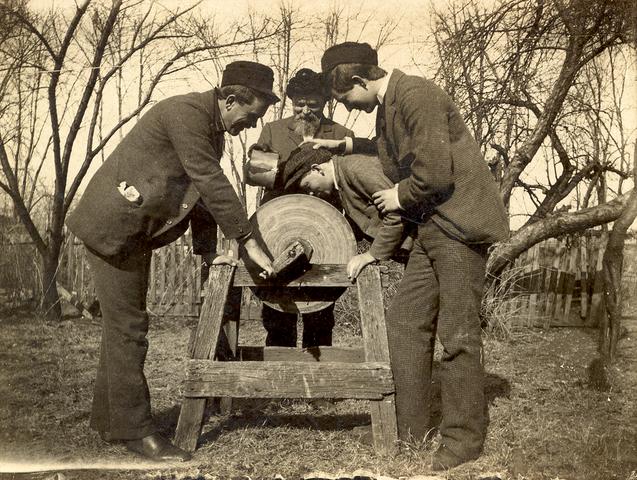
In the world of the strange and wonderful, I don't have Sjogren's Syndrome!! I don't know how on earth that happened, and neither does my rheumatologist. We discovered an issue where he has the records from my previous rheumatologist that discovered the Sjogren's, but he doesn't have the actual lab reports. I put in a call to my old doctor to see if we can't hunt those labs down.
I'm still shocked. Now the theory for my pain is either central neuropathy, fibromyalgia, or both. He's leaning towards both. Problem: there aren't many medications or therapies available for the treatment of either. There are about 5 medications, and I've been on all of them. A lot of them I had a severe side-effect that made it impossible to continue the medication. It's no good to ease a pain problem while causing a cardiovascular problem.
To complicate this, my kidneys are complaining. My rheumatologist has had me swear off NSAIDs. No more Aleve, no more Advil, no aspirin, no more Toradol in the ER. I need my kidneys to last. That's kinda important. Right up there with the heart. My doctor warned if I don't nip this in the bud now, I would need dialysis later on. No thank you. I go to the infusion center for testing often enough. The good news is we've caught it early enough. I can change my behavior and stave off future problems. Still, I have to now inform doctors that I've got the early signs of kidney disease. That's not something I wanted to add to the list.
I've scheduled a follow-up with my GP to get him up to speed on everything, also to get me to the doctors to explore the other theories. I'd love to go to a cardiologist, because I know I'm in terrible shape, and my heart probably matches. Cardiology is pretty straightforward. I'm not frightened of those doctors. Neurologists, on the other hand... they deal with spooky things like receptors in the brain and salt channels in the nerves, and all sorts of stuff we don't understand. I've had some horrendous experiences with neurologists and even worse with neurosurgeons. I'm very trepidatious and nervous about dealing with one of those.
But we need more answers. I want answers. There's no question that I'm sick. The question is what to do about it. In order to know which solution to choose, we've got to identify what's going on. I wouldn't want my doctor to operate on a healthy leg. I don't want to take a medication for a condition I don't have.
These are complications that I did not expect. Not one bit. But that's life, neh? Time to make the best of it.






 There are a lot of ways doctors are primed against patients. Frequently these are professional, psychological studies on "difficult patients." The problem is when you're a hammer, you can start to see everything as a nail. Doctors are problem-solvers. They expect to deal with problems at every patient encounter. However, it's not fair to see every patient interaction as a problem. Here's a list of pros & cons (and cons & cons) for patients when they deal with doctors.
There are a lot of ways doctors are primed against patients. Frequently these are professional, psychological studies on "difficult patients." The problem is when you're a hammer, you can start to see everything as a nail. Doctors are problem-solvers. They expect to deal with problems at every patient encounter. However, it's not fair to see every patient interaction as a problem. Here's a list of pros & cons (and cons & cons) for patients when they deal with doctors.